When You Can Perform Tayammum – A Complete Guide to Dry Ablution in Islam
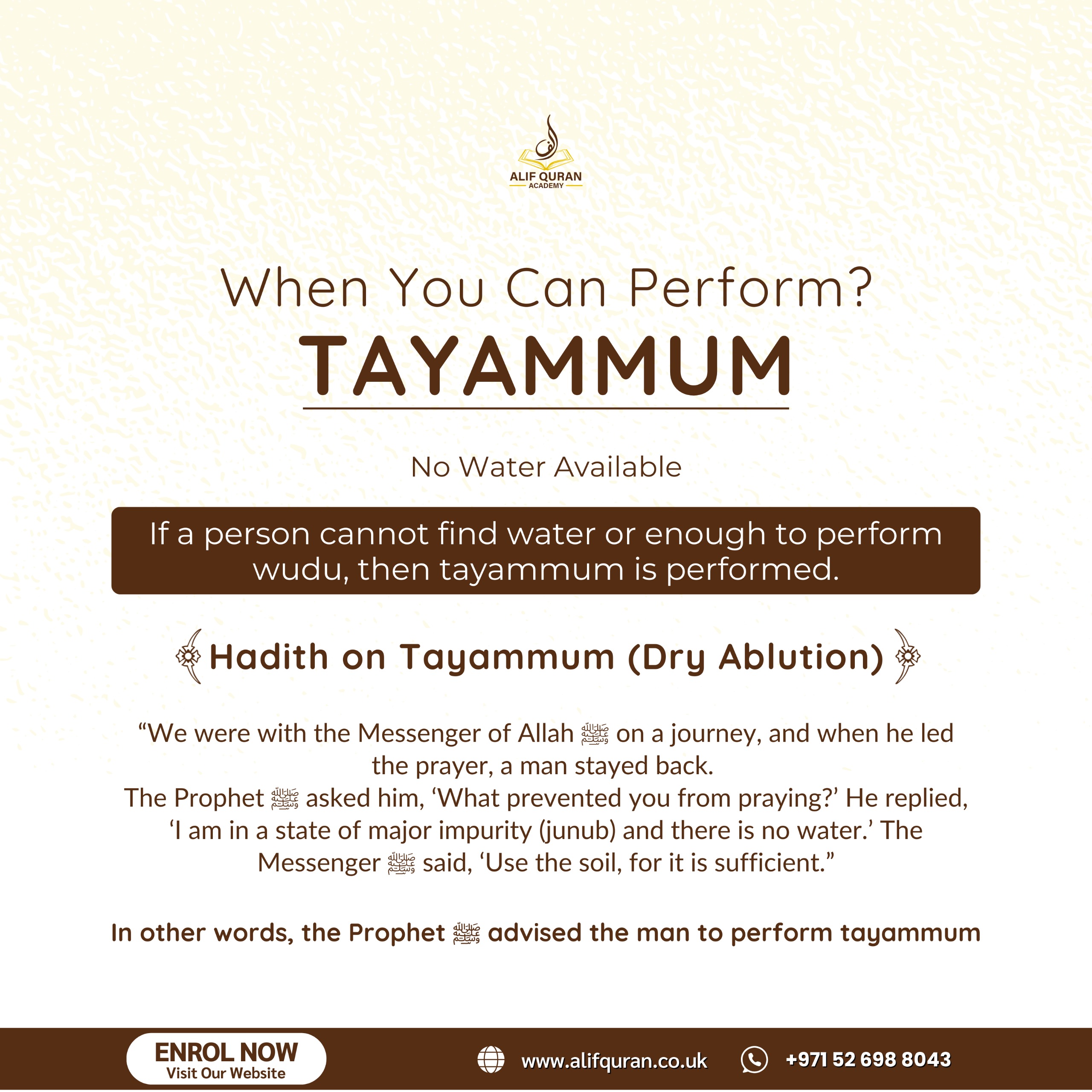
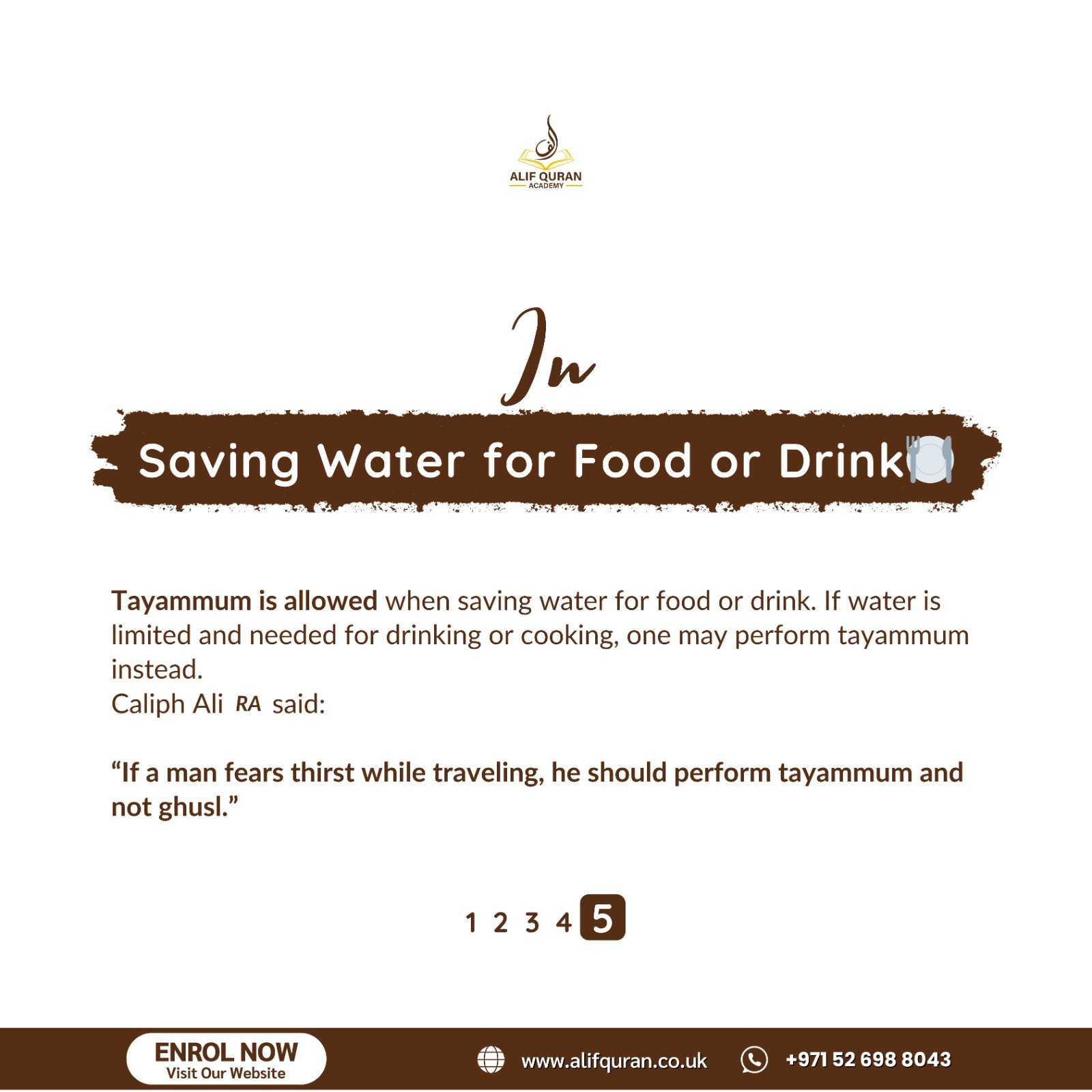
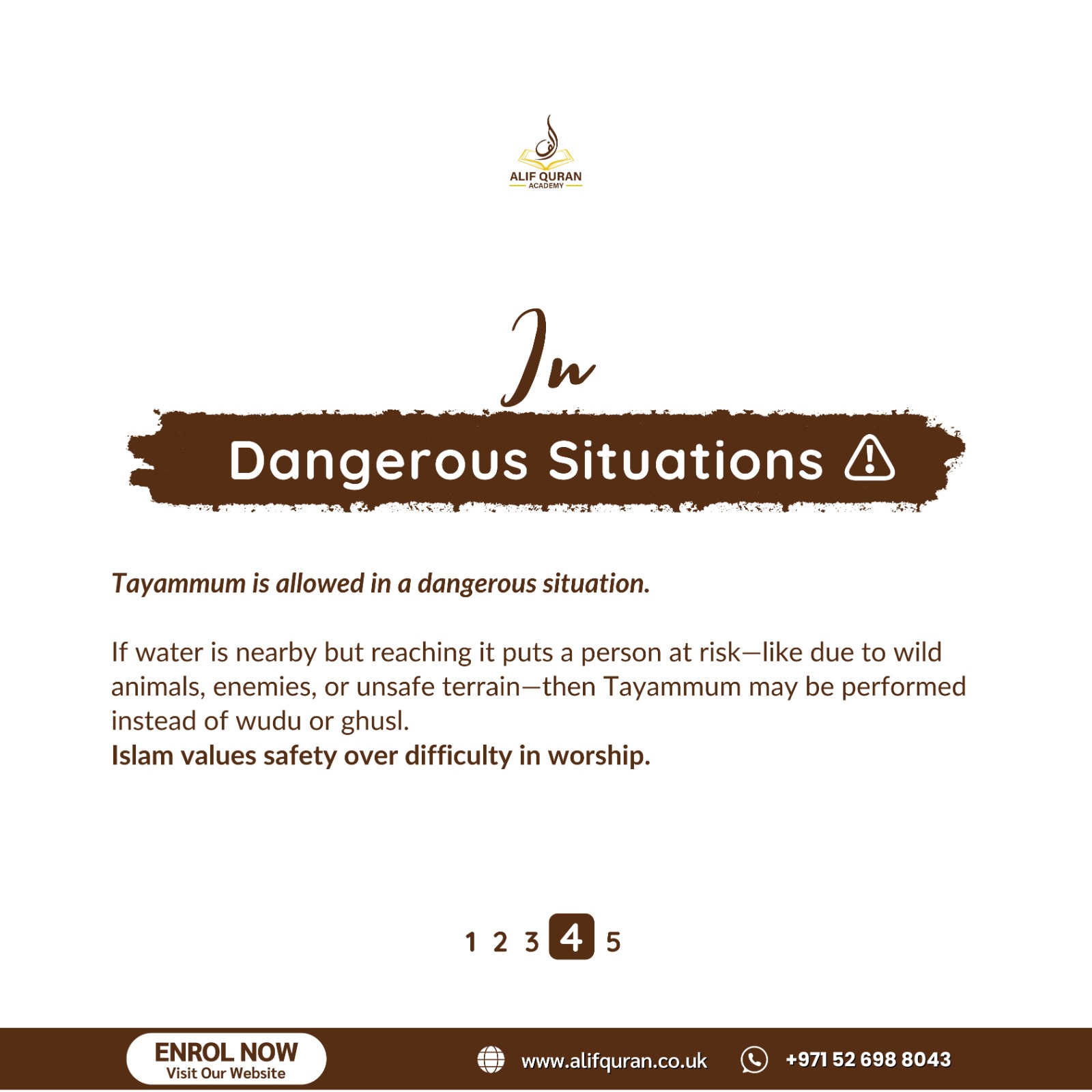
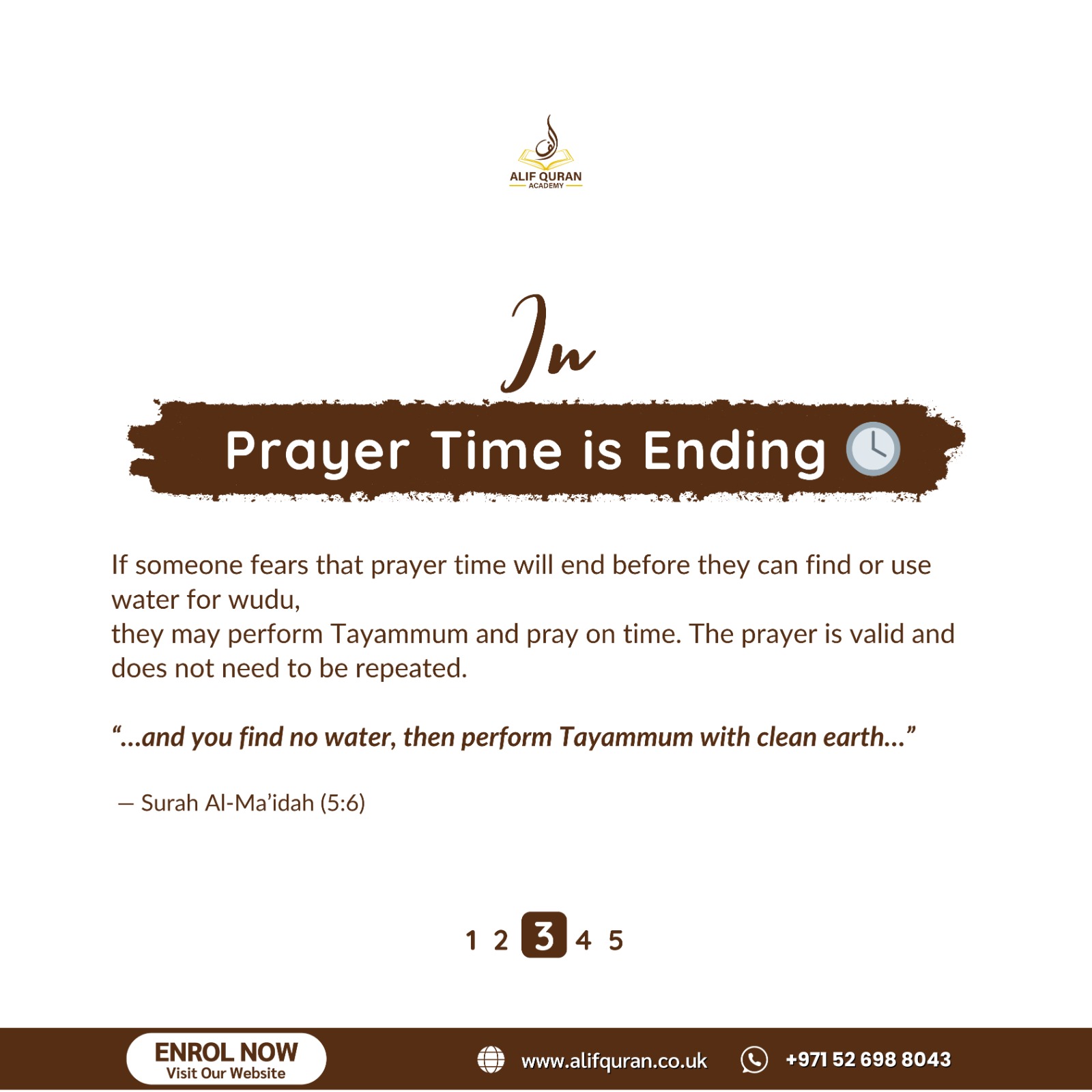
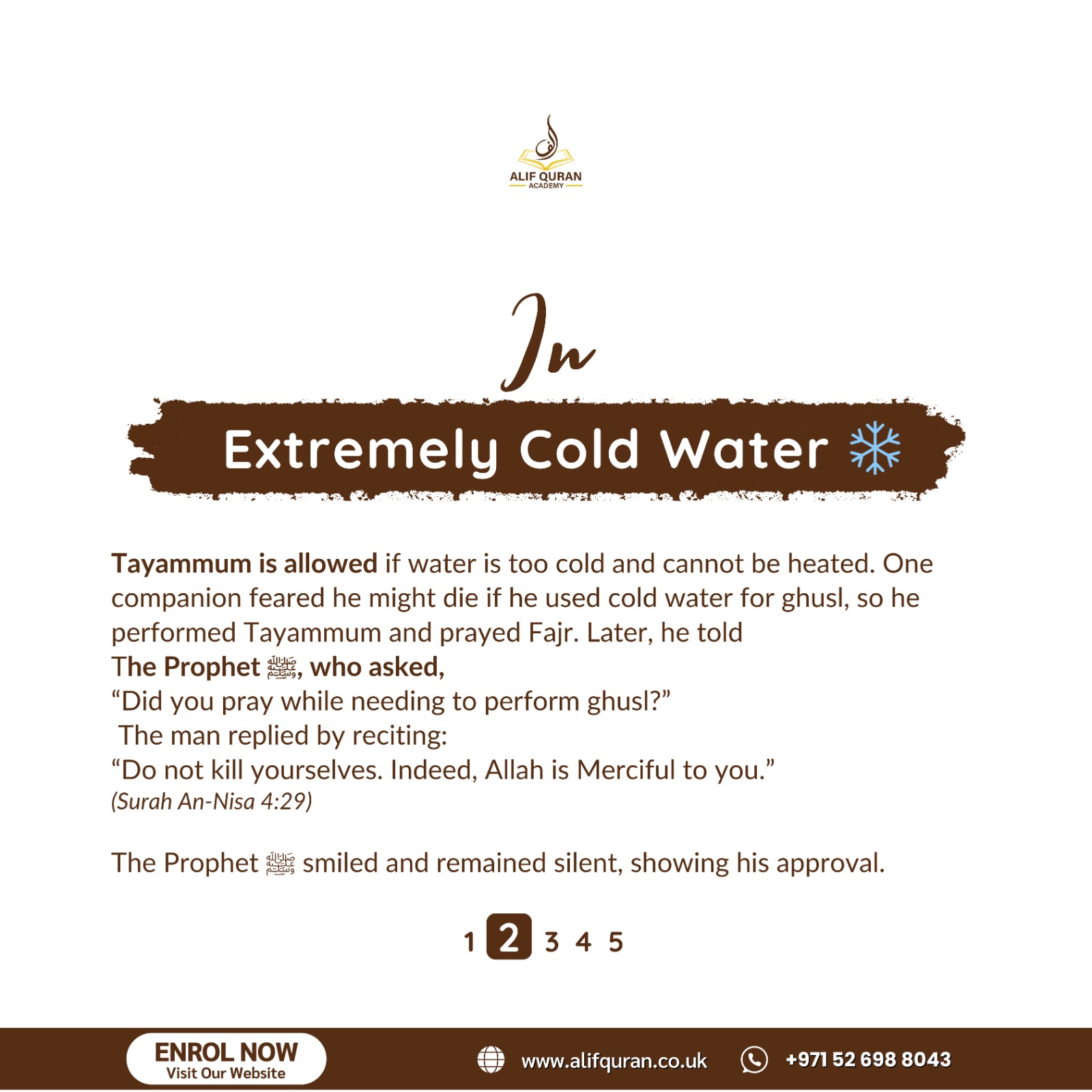
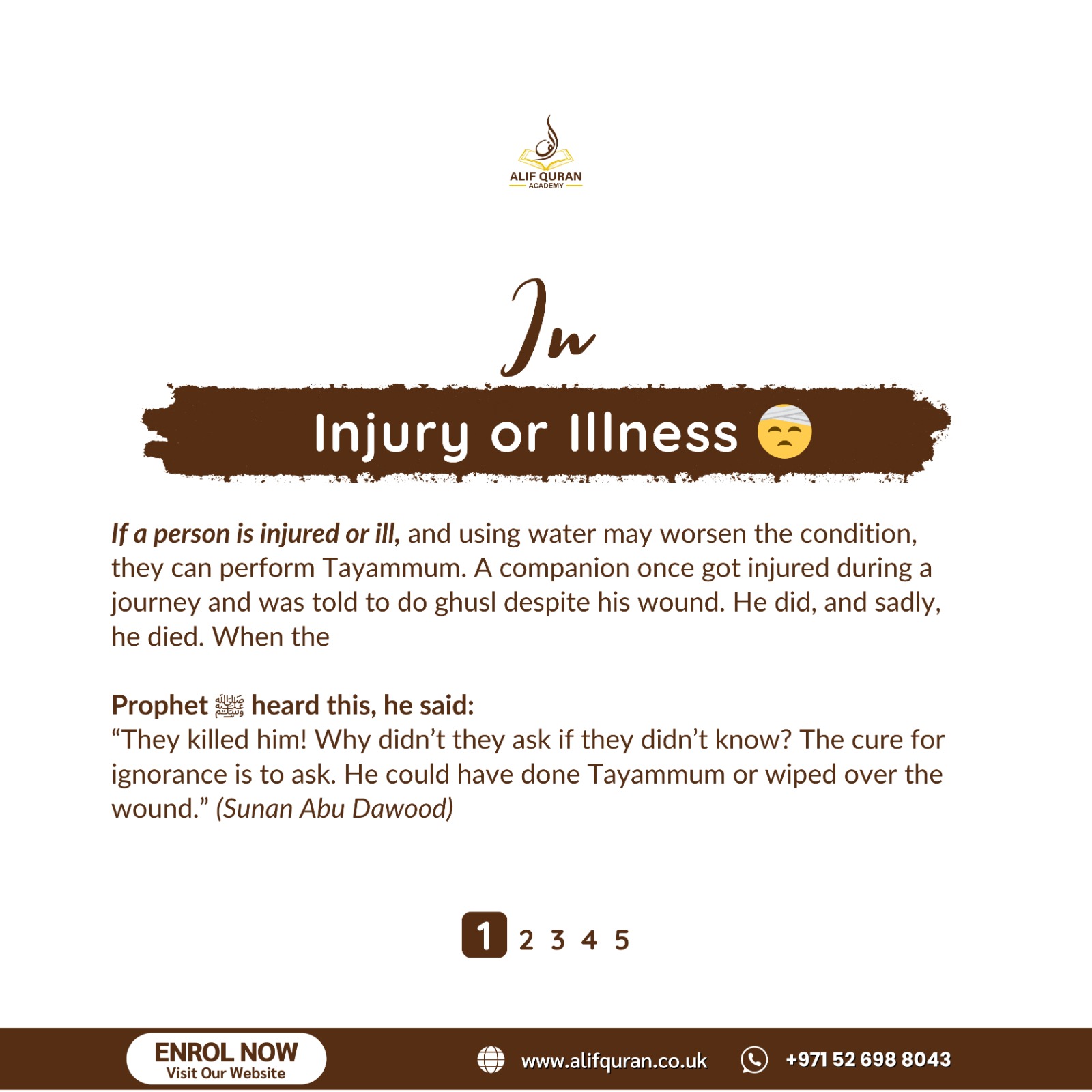
In Islam, cleanliness is an essential part of faith, and ablution (wudu) is a prerequisite for performing Salah (prayer). However, there are circumstances where water is not available or its use is not possible due to certain valid reasons. In such cases, Islam provides an alternative known as Tayammum, also referred to as dry ablution.
This article offers a comprehensive guide to Tayammum, its ruling, method, and references from Hadith to help Muslims understand its importance and application. Whether you’re traveling, sick, or in a water-scarce environment, knowing when and how to perform Tayammum is crucial.
What is Tayammum (تيمم)?
Tayammum is a symbolic form of purification using clean earth, soil, or dust in the absence of water. It is a substitute for wudu (ablution) or ghusl (full body ritual purification) when water is either unavailable or harmful to use.
The word “Tayammum” in Arabic means “to aim for” or “to intend,” as one intends to seek purification through earth when water is not accessible.
When Can You Perform Tayammum?
According to Islamic teachings, Tayammum becomes permissible under the following conditions:
No Water Available:
When a person cannot find water after a genuine search, or only a limited amount is available which must be preserved for drinking or cooking.Sickness or Harm:
If using water may worsen a medical condition or delay healing, Tayammum is allowed.Extreme Cold with No Heating:
In freezing temperatures where heating water is not possible and bathing could cause illness or harm.Travel or Remote Areas:
During travel in deserts, mountains, or remote areas where clean water is inaccessible.Time Constraints for Salah:
If one fears missing the prayer time while searching for water, Tayammum can be performed.
Qur’anic Reference for Tayammum
Tayammum is clearly mentioned in the Qur’an:
“But if you are ill or on a journey or one of you comes from the place of relieving himself or you have contacted women and do not find water, then seek clean earth and wipe over your faces and hands with it.”
— Surah Al-Ma’idah (5:6)
This verse demonstrates Allah’s mercy by offering flexibility in worship and a solution for those in hardship.
Hadith on Tayammum (Dry Ablution)
One of the most authentic and enlightening hadiths about Tayammum comes from the time of the Prophet Muhammad ﷺ:
“We were with the Messenger of Allah ﷺ on a journey, and when he led the prayer, a man stayed back. The Prophet ﷺ asked him, ‘What prevented you from praying?’ He replied, ‘I am in a state of major impurity (junub) and there is no water.’ The Messenger ﷺ said, ‘Use the soil, for it is sufficient.’”
— Sahih Bukhari
This hadith proves the permissibility of Tayammum even in the case of janabah (major ritual impurity), further confirming its role as a legitimate form of purification.
How to Perform Tayammum: Step-by-Step Guide
Performing Tayammum is simple and can be done in the following steps:
Make Intention (Niyyah):
In your heart, intend to purify yourself for Salah or another act of worship.Say Bismillah:
Begin with the name of Allah.Strike the Earth:
Lightly strike both hands on clean soil, sand, stone, or any natural dust-bearing surface.Wipe the Face:
Using both hands, wipe your entire face once.Wipe the Hands:
Wipe your right hand over your left up to the wrists and then your left over your right.
And that’s it! Your Tayammum is now complete and valid for prayer or other acts requiring purification.
Common Questions About Tayammum
1. What can I use for Tayammum?
You can use any natural material from the earth like soil, dust, sand, stone, or clay — as long as it is clean and dry.
2. Does Tayammum expire?
Yes. Tayammum becomes invalid if:
Water becomes available.
The reason for performing Tayammum (sickness, unavailability, etc.) no longer applies.
You perform anything that invalidates wudu (e.g., urination, sleep).
3. Is Tayammum allowed for every Salah?
Yes, but if water becomes available before the next Salah, you must perform wudu. Tayammum is temporary and specific to the condition under which it was performed.
Tayammum for Children and New Learners
Teaching children about Tayammum can help them practice Islam with flexibility and awareness. If a child is on a school trip, camping, or in a situation where water isn’t easily available, knowing Tayammum gives them confidence to perform their Salah without skipping it.
Platforms like Alif Quran Academy provide structured Islamic lessons online, helping kids and adults learn important practices like Tayammum in an engaging, easy-to-understand manner.
Benefits and Wisdom Behind Tayammum
Flexibility in Worship: Islam’s beauty lies in its ease. Tayammum ensures that worship remains possible even in hardship.
Maintains Spiritual Connection: One doesn’t miss Salah due to external limitations.
Reflects the Mercy of Allah: Allah ﷻ does not burden a soul beyond its capacity. Tayammum is a manifestation of divine compassion.
Conclusion
Tayammum is a beautiful gift from Allah ﷻ, offering a way to stay spiritually pure and committed to Salah even in difficult conditions. It is simple, quick, and an important concept every Muslim should learn.
Whether you’re traveling, sick, or facing water scarcity, Tayammum ensures that nothing stands between you and your prayer. The Prophet Muhammad ﷺ showed us through his words and actions that using the earth for purification is valid and sufficient when needed.
If you want to deepen your understanding of Islamic practices like Tayammum, consider joining courses at Alif Quran Academy – where children and adults alike are taught Islam with care, authenticity, and love.



